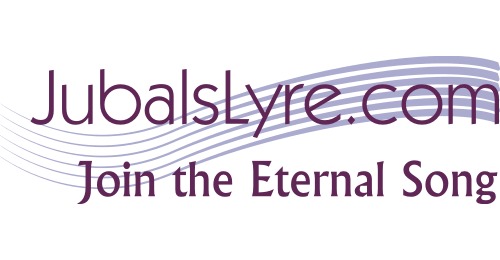Last week I posted some thoughts on the Magnificat or Song of Mary (see Reflections on the Magnificat). This week I would like to offer some reflections on the Benedictus, the song sung by Zechariah, the father of John the Baptist.
The Benedictus is the second of four songs that Luke records as he narrates Christmas story for us in the first two chapters of his Gospel. One day an old priest by the name of Zechariah1 was chosen to burn the daily incense in the Holy Place of the Temple. The Altar of Incense stood towards the back of the Holy Place in front of the Most Holy Place or the Holy of Holies in which the Ark of the Covenant lay. Standing before the Altar of Incense, the only thing that separated Zechariah from the Ark of the Covenant and the Mercy Seat (i.e. the cover of the Ark where God lived dwelled and from which He spoke) was a thick, purple curtain. While performing his duties in the Holy Place, the angel Gabriel appeared on Zechariah’s right and announced that his wife Elizabeth2 would have a child in answer to their prayers. They were to name him John.3 Rather than rejoicing in the news and thanking God for answering their prayers, Zechariah questioned Gabriel. For his unbelief, Zechariah was struck dumb until his son would be born. The full story can be found at Luke 1:5-24.
Here are a couple of videos for children to help them visualize Zechariah’s service in the Temple and Gabriel’s visit to Zechariah in the Holy Place.
For months Zechariah was unable to speak. It was not until his son was born and about to be named that he was given his voice back after he confirmed in writing that the child’s name was to be John. Rather than greet his wife, his son, or the people gathered around as one might expect after such an ordeal, Zechariah sang a song to God thanking Him and proclaiming His plan of salvation. This song is called the Benedictus after the first word of the Latin translation.4
Remarkably, the text of Zechariah’s song consists of only two sentences, albeit long ones with many well-crafted phrases connected by prepositions and conjunctions. The first sentence consists of 12 phrases that include 11 active and powerful verbs. The main concepts of this sentence are set apart by three key prepositions – “for”, “as”, and “to” – that help to outline the what, for whom, and why of God’s plan of salvation.
“Blessed be the Lord God of Israel,
for he has visited and redeemed his people
and has raised up a horn of salvation for us
in the house of his servant David,as he spoke by the mouth of his holy prophets from of old,
that we should be saved from our enemies
and from the hand of all who hate us;to show the mercy promised to our fathers
and to remember his holy covenant,
the oath that he swore to our father Abraham, to grant us
that we, being delivered from the hand of our enemies, might serve him without fear,
in holiness and righteousness before him all our days.
The “Lord God” in the first phrase is YAHWEH ELOHIM in the Hebrew (see The Meaning of the Name of Jesus). The “horn of salvation” refers to Jesus.
In the second and final sentence of his song, Zechariah addresses his son John directly. In eight phrases he proclaims what John’s role would be.
And you, child, will be called the prophet of the Most High;
for you will go before the Lord to prepare his ways,
to give knowledge of salvation to his people
in the forgiveness of their sins,because of the tender mercy of our God,
whereby the sunrise shall visit us from on high
to give light to those who sit in darkness and in the shadow of death,
to guide our feet into the way of peace.”
The superlative “Most High” in the first phrase of this sentence is a translation of the ancient Hebrew word ELYOWN and is another reference to YAHWEH, the one, true, and living God. The word “prophet” is NABI in the Hebrew and literally means “spokesman” or “speaker.”
There haven’t been as many choral settings of this text over the years as compared to other Biblical songs due partially to its length and the fact that it is more specific in that the last half of it is addressed directly to John. Zechariah’s song, however, is remarkable in the depth of the theology that it expresses and is particularly appropriate for the Advent season.
Below are videos of some wonderful settings. In the first, the Latin text is sung to a Gregorian Psalm Tone. In the second, chanted verses alternate with Renaissance polyphony, a common practice at the time and for many years to follow. The third is a setting of the English text for a soloist and mixed choir accompanied by an organ.
Blessed Advent!
GREGORIAN PSALM TONE
BENEDICTUS – Giovanni Pieluigi da Palestrina (c. 1525-94)
BENEDICTUS from Service in D Minor – Ralph Vaughan Williams (1872-1958)
Jubal’s Lyre Music. Shop for music by Jubal’s Lyre Music Publishers on www.sheetmusicplus.com.

- Zechariah is a Hebrew name that means YAHWEH REMEMBERS.
- Elizabeth is a Hebrew name that means GOD IS MY OATH.
- John is “Iohannes” in Greek which is a form of the Hebrew name “Johanan.” It means YAHWEH HAS BEEN GRACIOUS.
- More precisely it is the Benedictus Deus Israel to distinguish it from the Benedictus qui venit, which is second part of the Santus (“Holy, Holy, Holy”) in the Latin Mass, and the Benedictus sit Deus, which is the Offertory for Trinity Sunday.


